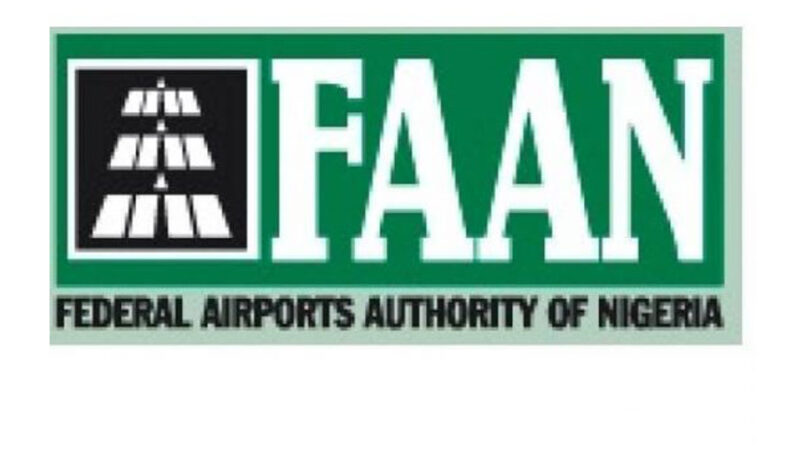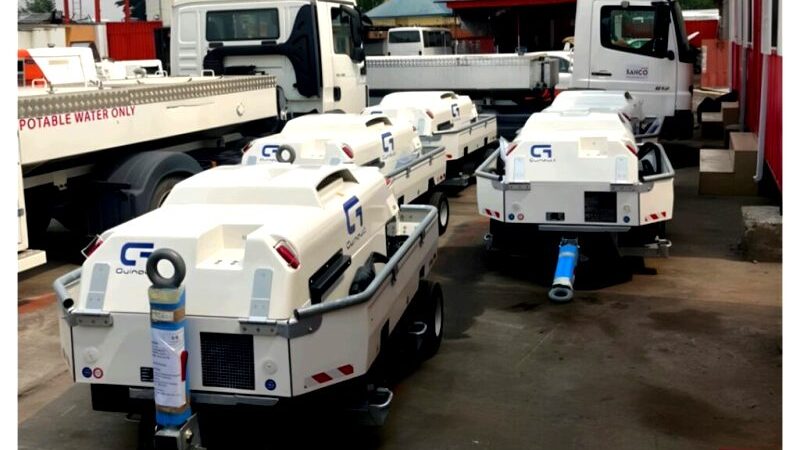Idu Proposes A Better Funding Structure For Nigeria’s Airports

To mitigate huge aviation risks and foster development in the aviation sector, there is urgent need for an organized funding structure that understands aviation risks and are ready to accommodate financing development partner for short and long-term projects.
The above submission is part of the recommendations made by the Founder, Airport Business Summit and Exhibition (ABSE) and Drontecx, Mr Fortune Idu, which were drawn from the past ABSE reports and drone technology conferences in Nigeria.
According to Idu, there is no financing mechanism in Nigeria for this industry presently, and yet the government takes away a chunk of reinvestment proceeds from the airports. He explained that the airlines are engrossed in high-interest loan debt, which makes growth impossible, recommending the setting up of a sinking fund for the industry and an Aviation Bank or a modal integrated Transport development Bank driven by the aviation sector, which enables the creation of a robust finance mechanism for the industry.
The recommendation equally emphasized the need for special airport development planning focus on Lagos and Abuja to emerge as West and Central Africa Regional Air Transport hub.
“This aims at creating a unique airport infrastructure development programme for Murtala Muhammed International Airport and Nnandi Azikwe International Airport that will help to tire the Regional Commercial Hub Position of Lagos in West Africa and as Abuja Political Hub into national airport development ambition that take full advantage of the Africa Single Transport Market Initiatives”
“This will require planning for Model Integration and Connectivity, Land Replan and Optimization Master Planning Review. Nigeria’s airports will require a development progression masterplan to create independent ambitions of all the airports, sustainability plans, and investment guides. To accomplish this, you need a reliable international consultant and an experienced global partner. I recommend you consult with Munich Airport International, Germany, which has already established this partnership. By partnering with them, you can access Europe and the global market”, Idu stressed.
Noting that most of the problems the industry faces today are caused by a lack of advanced research and data planning, Idu pointed out that it is essential that all aviation planning departments should be restructured and refocused with personnel who understand and are qualified to perform research and data-based planning and are well-trained to do so.
On the Federal Airports Authority of Nigeria (FAAN), Idu noted that the organic structure and formation of FAAN, which empowers it with four critical divergent responsibilities, is faulty and less relevant to global airport development practices.
The result, he said is that such situation has limited FAAN’s ability to progress sustainably and provide adequate service to Nigeria’s air transport industry, adding that FAAN is an airport authority with a supervisory role in all airport developments in Nigeria.
“However, it has failed to perform this role due to a lack of capacity. It is also the land custodian for planning and implementing airport projects, but it has not delivered a good airport landscape. FAAN manages all federal airports but often claims they are not commercially viable in a country with over 250 million people and considered the wealthiest country in Africa”.
“Additionally, FAAN provides security and safety cover for airports nationwide and is the sole airport operator for federal airports, a responsibility it has performed well. However, this structure is ambiguous and no longer relevant in modern-day airport structures. The airport is a business, and the four responsibilities of FAAN can be separated to offer more efficient services. This can also create more responsible jobs where people are limited to areas in the air transport sector where they have the qualifications to work. Only after resolving this issue can the concession, outsourcing, and any other PPP model work. Therefore, it is suggested to divide FAAN into three organizations”.
“The following will be the result of the unbundling of FAAN. An Airport Development Authority (Agency): An agency with authority to supervise, advise, and check the capability and practicality of the development of airports in Nigeria and monitor their development for both private and public sectors, which should cover aeronautic and non-aeronautic matters of airport development. This agency shall help all airports meet the stringent guidelines and regulations of the NCAA while meeting with the diverse dynamics of non-aeronautical activities within the aviation space. Airport Management Company: This is a private sector-oriented Airport company (can be called Nigeria Airport (Management) Company Group Plc), which shall be a public and private equity company charged with the function of engaging in airport operations and management anywhere in Nigeria and possibly in the world. This company can compete for future concession bidding and must be privatized”.
“The third organization shall be Federal Airports Property Company Ltd, the owner and custodian of all Federal Airports Lands and Properties. These establishments will be enough to handle the unexpected labour shock that may arise from the concession. And the industry can go the entire length of concession and privatization of not just a terminal but a whole airport”.
The recommendation equally advised on the need for Nigeria to begin today with a policy framework she needs to set a national policy frame to drive the operations of Remotely Piloted Aircraft Systems/Unmanned Aerial Vehicles (RPAS/UAV) (Nig CAR Part 21), a new dimension of aviation which has been set in place.
“We recommend a complete unit in the Ministry for UAS and a directorate in the NCAA for (RPAS DRONE) or Aviation Automation, The Future of Airport Development in Nigeria. Almost all the States of the Federation want an airport now. Though this may look like progress for the air transport industry, the state’s aspiration and determination to sustain airport operations is unclear. After the initial startup, finance sustainability becomes a problem. To make it worse, the State is borrowing from a faulty structure, and apart from Lagos State, none of the airport developments can boast of an initial masterplan,” Idu emphasized.






